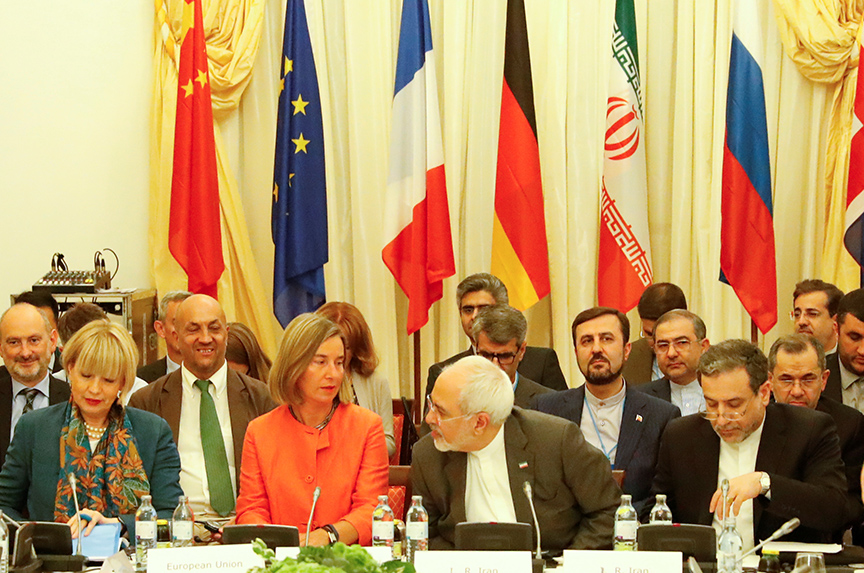 You would not know it from reading the news, but the Iran nuclear deal is still alive. The Europeans, however, are faced with an impossible task: to preserve an international agreement that cannot survive without Washington’s backing in the face of an aggressive US posture toward Tehran.
You would not know it from reading the news, but the Iran nuclear deal is still alive. The Europeans, however, are faced with an impossible task: to preserve an international agreement that cannot survive without Washington’s backing in the face of an aggressive US posture toward Tehran.
In May, US President Donald J. Trump pulled out of the nuclear deal calling it “decaying and rotten.” The United States next re-imposed a first batch of economic sanctions on Iran in early August. Multinational companies have started leaving Iran even before the November 4 deadline by when Washington will enact a renewed oil and gas embargo on the country. All this even as the United Nations’ nuclear watchdog, the International Atomic Energy Agency (IAEA), last week confirmed that Tehran continues to broadly abide by its obligations under the 2015 deal. That confirmation coincided with a meeting of the European Union’s foreign ministers in Vienna to discuss Europe’s position toward Iran.
As for what Europe’s approach should be toward the United States, German Foreign Minister Heiko Maas recently described it as: cooperate wherever possible, fill the vacuum that a receding superpower creates, and stand your ground when there is profound disagreement. The Europeans are trying hard on all three fronts but without a real chance of succeeding.
Read the rest on the New Atlanticist blog.
Cornelius Adebahr is a nonresident fellow at Carnegie Europe. He is the author of “Europe and Iran: The Nuclear File and Beyond” (Routledge 2017).
Image: European Union High Representative for Foreign Affairs and Security Policy Federica Mogherini (front row second from left) and Iranian Foreign Minister Mohammad Javad Zarif (front row second from right) attended a meeting in Vienna, Austria, on July 6. (Reuters/Leonhard Foeger)
